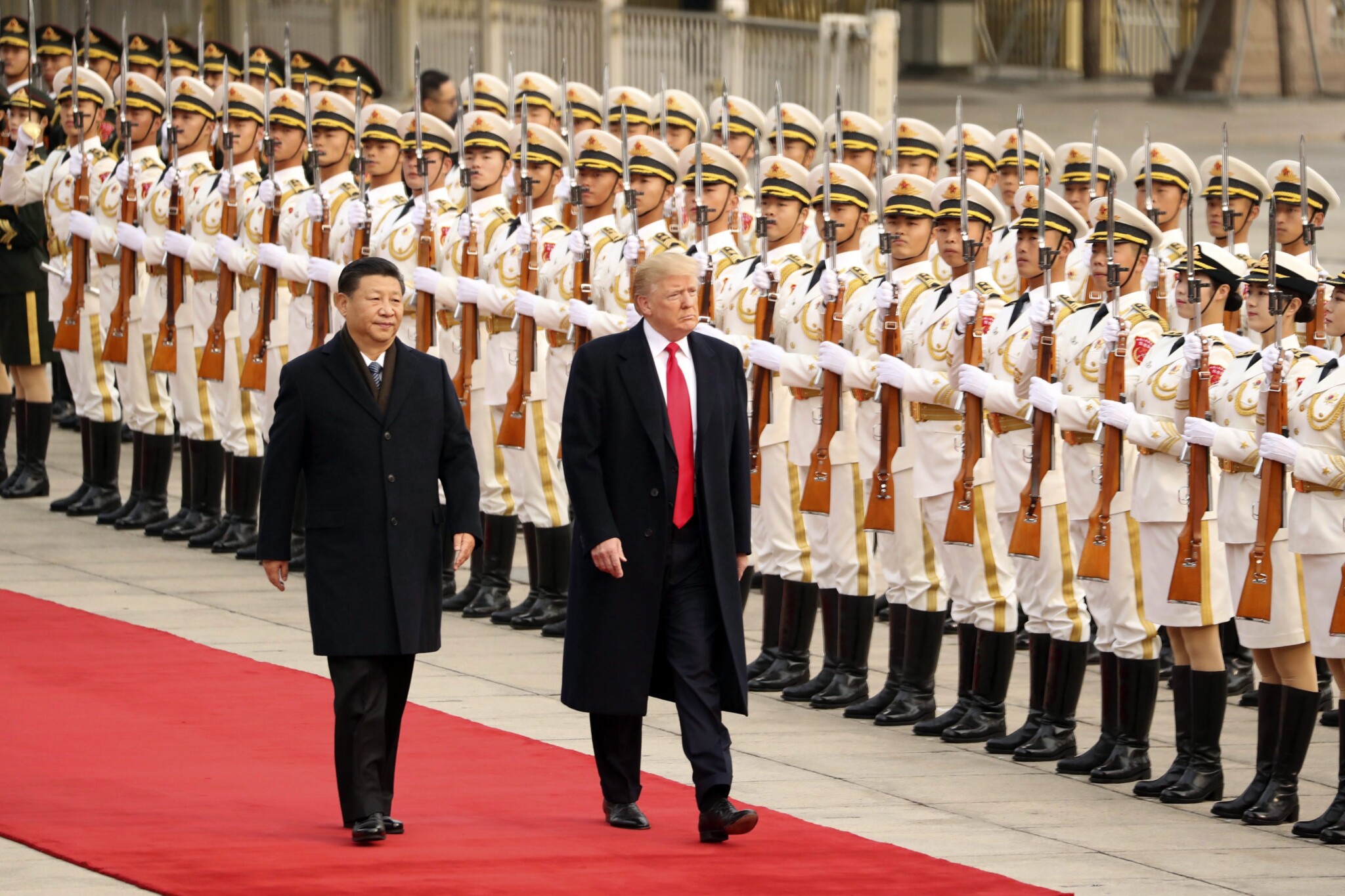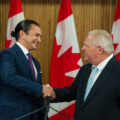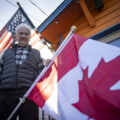As Donald Trump escalates trade tensions with China, foreign policy has erupted into the foreground—though you wouldn’t know it from the Canadian election trail.
This week, Janice Gross-Stein, founding director of the Munk School of Global Affairs, appeared on The Hub’s election YouTube show and warned that Canada is facing the most significant foreign threat in a century, and that Canadians do not fully understand the economic and political risks of a Trump-led White House. Reverberations from the superpower sparring will hit Canada.
Here are three takeaways from her discussion:
- The U.S.-China tariff war marks a geopolitical inflection point: Trump’s dramatic tariff hike from 104 percent to 125 percent on China may represent an irreversible breakdown of the “Chimerica” relationship, potentially triggering a prolonged conflict between the world’s two superpowers with global economic consequences.
- Trump’s economic nationalism threatens Canada’s stability: Canada, though not Trump’s immediate target, could suffer serious collateral damage from ongoing trade aggression, including job losses, weakened investment, and compromised sovereignty over key resources like water and fertilizer.
- No election discussions on foreign policy? That’s okay: So far, the federal campaign has not been focused on distinct foreign policy offerings, due to the threat of an economic war with the U.S. taking precedence in people’s minds.
A tariff war with global stakes
Stein said Trump’s new China policy: a hike of tariffs to over 120 percent, potentially signals the end of a fragile detente between the two powers.
“We might look back on today and say that was the moment the Chinese-American relationship broke apart,” she explained.
What made the previous era of uneasy coexistence work, Janice explained, was mutual economic dependence. This “Chimerica” buffer allowed both countries to sidestep deeper confrontations over controversial flashpoints like Taiwan independence and control of the South China Sea.
But this tariff war has now stripped that buffer away.
“They’re on a path now.” Stein warned, “Up an escalation ladder.”
She described how we are now locked in a contest of endurance and brinksmanship, where each side aims to inflict more economic pain than it absorbs.
A domestic unity crisis looms
While Canada was largely spared from Trump’s most recent tariff barrage, Stein believes this is likely a matter of strategic sequencing rather than goodwill.
“Most smart fighters don’t want to fight with everybody in the world at the same time,” she said. If the U.S. intends to confront China head-on, it will want to “secure its own backyard” first.
But that doesn’t mean Canada is safe. Stein emphasized that our country could become a “weakened” state—the collateral damage of a U.S. administration determined to impose its will economically. Investors may lose confidence, while companies may move production to the U.S..
Essential Canadian exports, such as potash for American agriculture (of which 80 percent depends on Canada) and freshwater access, could become bargaining chips. The fear, she explained, is that Canada could be “taken apart piece by piece,” not by invasion but by policy.
Stein sketched out a bleak but plausible scenario: Trump could ramp up economic threats, Canada’s economy takes a hit, and Canadian leaders arrive at a negotiating table too weak to resist U.S. demands.
“We’re not the 51st state,” she said, “but he’s effectively got the best of us.”
Stein also raised a warning that this external pressure could expose and deepen Canada’s internal fault lines. With Canada’s political map fractured—Liberals strong in the East and urban cores, Conservatives dominant in Western provinces—the conditions are ripe for a national unity crisis.
Her proposed antidote: a strengthened internal market that provides all regions with tangible benefits. Infrastructure, industrial defence development, and shared economic projects across provincial lines could provide a unifying framework that’s less vulnerable to foreign pressure.
“Don’t do regionally focused stuff,” she urged Canadian leaders. “Do stuff where the benefits break through these regional rivalries that have bedevilled us for so long.”
Why Canadians aren’t talking foreign policy during the election
Finally, Stein isn’t surprised that foreign policy more broadly isn’t a central issue in the 2025 federal election. She described Trump’s “economic war” as being one of the most existential crises Canada has faced.
“We face the most serious threat that we have faced in 100 years, and I’m including [both World Wars],” she described. “Because that was over there.”
AI assisted in the production of this summary. If you are referencing this summary refer to the audio to verify.








